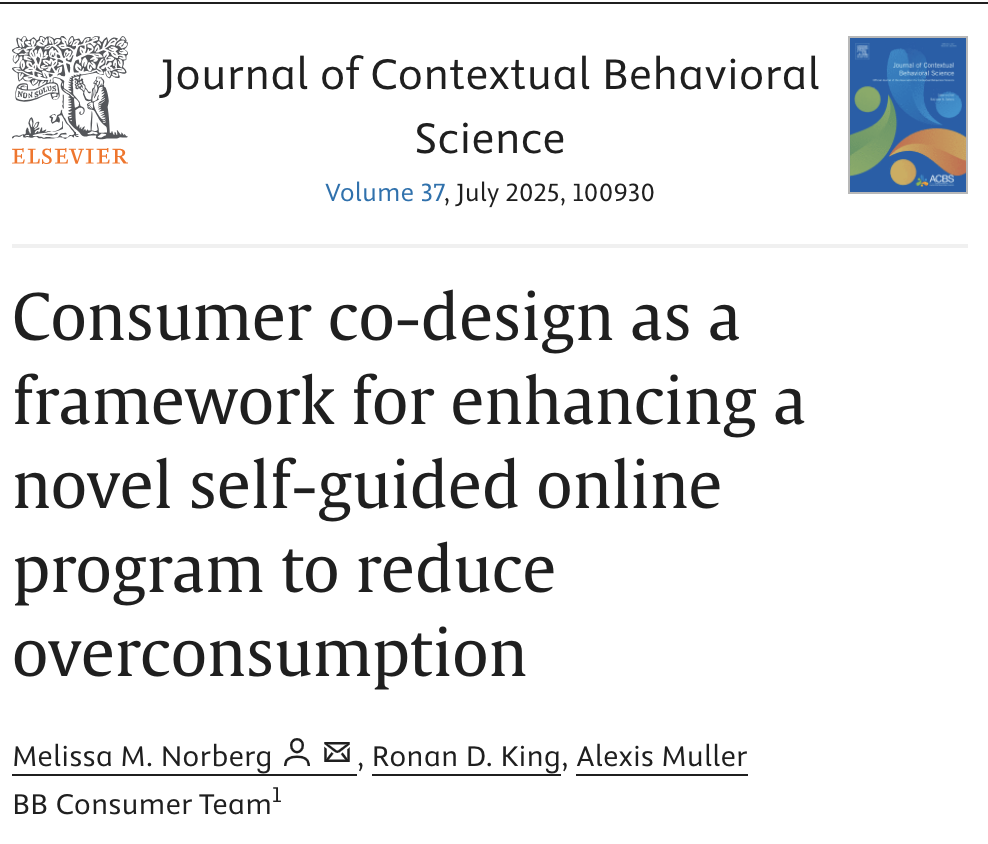Journal of Contextual Behavioral Science (JCBS)
Volume 37, July 2025
Authors
Melissa M. Norberg, Ronan D. King, & Alexis Muller BB Consumer Team 1
Key Findings
- Co-design empowers consumers to act as equal partners in improving health services.
- Consumers helped revise a self-directed online program for reducing overconsumption.
- The co-design process was evaluated by researchers and consumers.
- Findings highlighted a meaningful, collaborative co-design process for all.
- The clarity, relevance, and likability of the program was improved.
Abstract
Breaking Up with Belongings (BB) is the world's first evidence-based, self-directed online program designed to improve emotion regulation and reduce overconsumption. Although initial pilot testing resulted in promising outcomes, user responses suggested that the program could be more engaging, clearer, and relevant to consumers. The objective of this study was to examine whether co-design methodology could be used to meaningfully refine the self-guided online program, by evaluating both the changes made and the experiences of those involved. Over the course of nine months and five workshops, consumers and researchers collaboratively revised the program. The original program was refined and expanded to include simplified language, clearer and more detailed instructions and descriptions, more frequent references to the Australian context, and a new module on Waste and its Solutions. We then assessed the effectiveness of our co-design procedures by evaluating the usability and impact of program revisions, the dynamics between researchers and consumers, and consumer experiences. Consumers determined that the co-design process was effective, citing the lead researcher's expert facilitation as a key factor. This leadership fostered a collaborative and respectful environment that empowered all consumers to engage meaningfully in the procedures, processes, and outcomes. As demonstrated by this study, an iterative co-design process can generate valuable insights for intervention refinement. Consumers value their role as co-designers and respected contributors to research. By using a collaborative, grass-roots approach, researchers can ensure that their programs are clear, relevant, and engaging.
